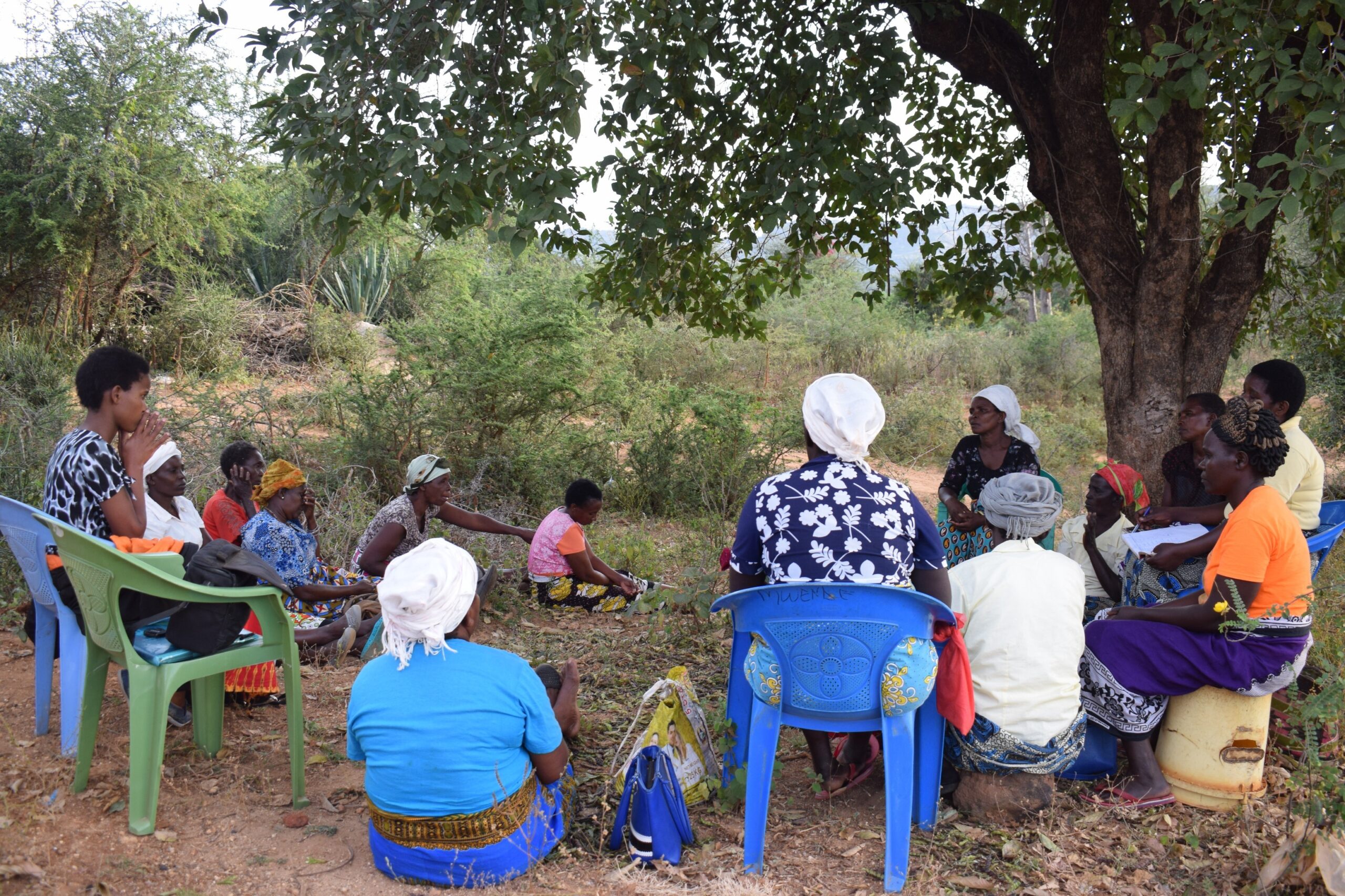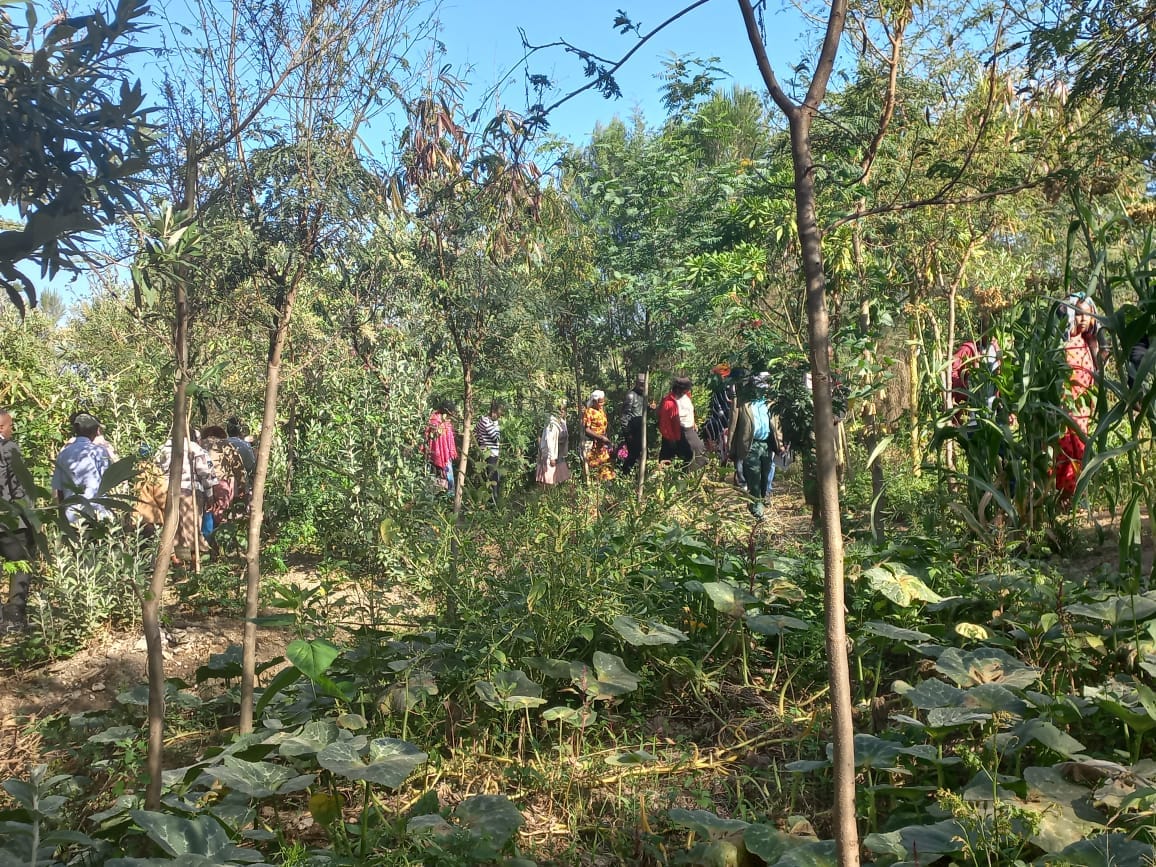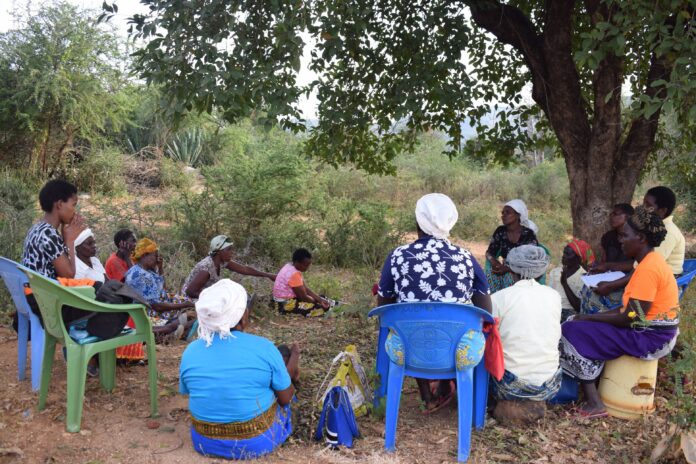By Jackson Okata
Kitui County, Kenya: In 2019, Ann Mutheu, 58, lost her husband unexpectedly. The two had lived together for 20 years and the death almost crushed Ann who was left to take care of their four young children. Ann’s husband succumbed to Chronic Kidney Disease (CKD), a condition doctors blamed on “obesity caused by poor dieting”.
Mutheu says her late husband was a “heavy consumer of meat and processed foods’’ adding that “his ever-busy schedule confined him to his office seat” for long hours, leading to his obese status.
“Fast foods were his main thing and he was not keen about his physical health. His weight gave him some breathing problems but little did we know that his kidney was under serious destruction’’ Mutheu told Talk Africa.
She added “He failed to eat healthy foods as medicine and the result was him eating medicine as food while battling kidney failure’’.
Dr. Jonathan Kioko, a consultant physician at the Kitui referral hospital who treated Mutheu’s late husband, notes that obesity was the major cause of the kidney problems that claimed his life.
“He battled obesity for a while and his problem was solely due to poor dieting. By the time the kidney problem was dictated, there was very little we could do to reverse the situation’’ explained Dr. Kioko.
Pushed into Action
Inspired by the loss, Mutheu initiated a campaign to sensitize smallholder farmers on the need to produce and consume healthy foods. In Kyusyani village of Kitui central, started an organic gardening club focused on educating rural women on how to grow and consume organic produce.
“After the death of my husband, I decided to carry out a survey on the kind of foods the community was consuming and their health effects. The majority of our farmers were using a lot of chemical-based inputs which means the food produced was very unhealthy. In every home it was common to find at least one person suffering from non-communicable diseases which could be attributed to unhealthy diets’’ Mutheu narrates.
Mutheu notes that she felt the burden of taking action and that is why she committed to fighting the impact of the detrimental effects of non-communicable diseases (NCDs) in her community, through her transition to organic farming methods crusade.
Patricia Mutie has battled type 2 diabetes for 5 five years, a condition she says is getting better after she started consuming organic foods. Mutie says that since she started embracing organic food production and consumption, it has been easy to manage her condition and that she “no longer has troubles with the many hospital visits she used to make.’’
“I was trained not only about eating healthy but also producing healthy food. Organic farming is not only friendly to my health but also to my environment since I use zero chemicals,’’ says Mutie.

Currently, Mutheu has trained 25 women groups of 250 farmers spread across two wards in Kitui County on organic farming techniques and food production, food preservation, post-harvesting care, and value addition. Through the women’s groups she is also “able to preach the gospel of healthy eating” Mutheu adds.
“We target women because in our communities, it is mostly the woman who is in charge of food production and they are the ones who make decisions on what is to be eaten in the home. We train them on how we can utilize small spaces at home to produce healthy foods while at the same time taking care of the environment’’ Mutheu told Talk Africa.
She added “ We are educating the community that eating healthy food can help keep us safe from some of these lifestyle diseases’’.
Grace Musyoka is among the farmers who have been trained on organic food production. In 2019, her husband was diagnosed with Gastrointestinal stromal tumors( a type of stomach cancer), a condition he has battled to date.
“Use of organically produced foods has made it easier for us to manage the condition. Courtesy of the group training we are now able to easily identify what food is organic and what is not” says Musyoka.
Kenya’s Status
In the report titled Kenya Health Facility Census 2023, it was revealed that about four million Kenyans have chronic kidney disease, with a significant proportion of this population progressing to kidney failure.
According to Dr. Kioko, this comes with an economic burden because out of the four million, about 10,000 people have end-stage renal disease and require dialysis, yet only 10 percent access dialysis. Kidney patients are required to undertake dialysis three times a week.
According to the census, an increase in the burden of non-communicable diseases with kidney failure has resulted in an increase in the demand for renal services. In Kenya, according to the Ministry of Health data, approximately 1.8 million people are suffering from chronic kidney disease.
Health Cabinet Secretary Susan Nakhumicha says that close to a quarter of the adult population in Kenya has high blood pressure while the prevalence of diabetes stands at 2.4 percent.
“Kidney diseases are becoming a major public health, social and economic concern. It is time for us to act with speed to tame this dangerous tide and achieve control for those diagnosed to prevent the development of complications,” says Nakhumicha.
Unhealthy Diets
Dr. Jonathan Wala, a consultant nephrologist, describes chronic kidney disease as “conditions that damage kidneys and decrease their ability to keep the body healthy by filtering wastes from your blood”.
“If the kidney is not healthy and functional, the body will accumulate high levels of chemicals in the blood and this makes one sick. If you eat foods that are full of chemicals, your body will accumulate toxins that can lead to the destruction of vital organs like the kidney’’ says Dr. Wala
Dr. Wala further explains that consuming healthy and chemical-free foods acts as a strong defense for the kidney adding that a dysfunctional kidney can lead to high blood pressure and low production of red blood cells which can lead to other risks such as heart attacks and cancers due to the accumulation of chemicals in the body.

“Eating too much-processed foods can be a trigger for body overweight and when the body accumulates too much chemicals, the kidney which is supposed to do the cleaning becomes overwhelmed and weakened. Organically produced food is medicine on its own and we should encourage people to consume such foods that are chemical-free.’’
“For kidney diseases, you can easily link them to risk factors such as diabetes or high blood pressure. High prevalence, late diagnosis, limited access to treatment, and poor control of non-communicable diseases such as hypertension and diabetes are major contributors to chronic kidney disease,” he adds.
The Health Burden
According to the Kenya Demographic Health Survey (KDHS), in 2022 one percent of both men and women aged 15-49 were told they have high blood sugar or diabetes by a doctor or other healthcare worker. Among these women and men, 63% of women and 73% of men are taking medication to control blood sugar.
Statistics from the Kenya Renal Association estimate that 4 million Kenyans are suffering from kidney disease, and by the year 2030, the number will rise to 4.8 million. The World Health Organization (WHO) projects that kidney diseases will be the fifth leading cause of premature deaths in the world by 2040.
Kenya Health Facility Census, only two percent of hospitals in the country offer renal (kidney) services. At least 12,384 hospitals across the country were assessed.
The report noted that less than half of the hospitals across the country providing renal services had all the necessary equipment, services, and infrastructure. Kenya has an estimated 10,000 people with end-stage renal disease who require dialysis, yet only 10 percent access dialysis. Kidney patients are required to undertake dialysis three times a week.
Mutheu says that her intention is to form a strong network of rural women smallholder farmers who will become organic champions to lead what she describes as a revolution back to producing and eating healthy foods
“This is a movement we plan to spread not just in Kitui but across the country because we have the potential to produce healthy and safe food as one way of keeping safe from non-communicable diseases’’ she concludes.
Dr. Wala observes that most non-communicable diseases could be easily managed and avoided if only people were keen on their lifestyles including watching what they eat.
“You cannot consume poison and stay safe. If we want to stay healthy we must strive to eat healthy and poison-free food including processed products and conventionally produced foods’’ he said.
This story was produced with gracious support from the Non Communicable Diseases Alliance (NCDA) Kenya.














